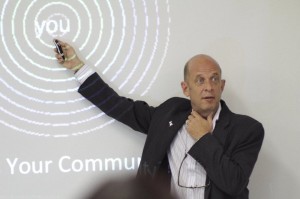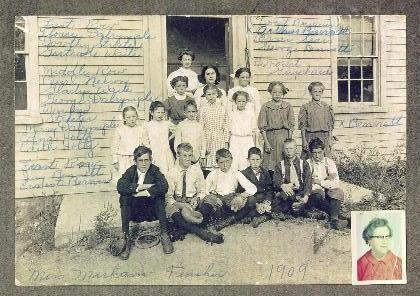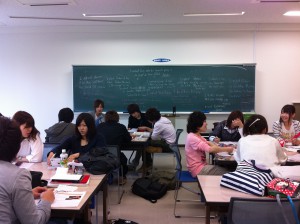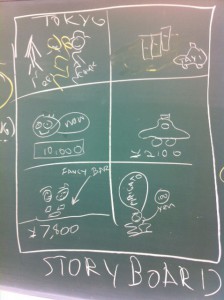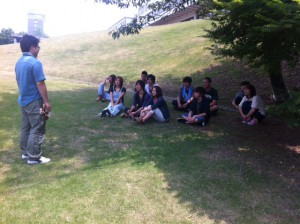Take The First Step — Chuck Sandy
Every once in a way you hear someone say something so true that everything inside you shifts a little. Lights go off in your mind. Pieces of things you’ve been thinking about for years suddenly get tied together, and all at once you wind up with a new frame for the window you use to see the world.
This happened to me a few years ago when I heard community activist Bob Stilger say, “every community is full of leaders just waiting to be asked to step forward”. Those words from Bob helped me to reframe and redefine my thinking, the same way that Steven Herder’s now famous statements about collaboration did. When I first heard Steven say, “Anything I can do, we can do better (together)” and “collaboration provides just the right amount of pressure to get things done” similar bright lights went off inside me as a new framework took hold. It is now not too much to say that these statements have come to define how I think about community building, collaboration, and leadership.
With this new framework in place, I started seeing leaders everywhere I looked and began seeing the ways that leadership works within all kinds of different communities. In every community, leaders emerge, helps others grow, then steps back to let others lead. It’s a beautiful thing to see and encourage.
One of the most wonderful things about iTDi is that we put Bob Stilger’s words into practice every single day as we reach out to teachers who are already leaders in their own communities and say, “How about you, ______? Would you _________?”
As a community builder, I have discovered that the best way to complete those two questions is different every time. You complete the first question with a person’s name. You complete the second question in a way that shows you’ve done your homework and already have a good sense of what this person is good at, proud of, or perhaps working on being better at. Then, once you ask, you encourage just enough, and then you wait while expecting the best.
That’s what I’m doing right now with you, dear reader. I’m asking you to take the first step. Help us get to know you by answering the same questions that Sevim, Victor Hugo, Malu, James, and Michael have answered for this issue of Voices From the iTDI Community:
What are you passionate about?
How and why did you become a teacher?
What are you most interested in right now?
What’s the biggest challenge you face as a teacher?
What advice would you give a teacher just starting out a journey of professional development?
Is there any blog or online link you’d like to recommend?
What’s your favorite quotation about teaching or education?
Is there anything else you’d like to say?
By going to http://itdi.pro and answering these questions in the Social Forum, you will begin a relationship with the iTDi community and help us get to know you. As we get a sense of who you are and what you’re best at, proud of, and working on getting better at, we’ll come to understand how best to complete that second question when we reach out and ask you to step forward and lead.
I’m asking you now to take the first step. I’m expecting the best.
Chuck Sandy
iTDi Community Director
